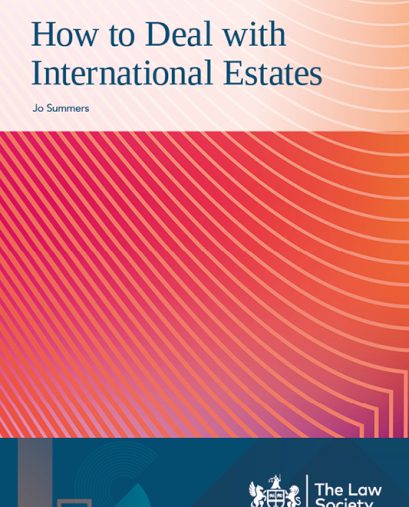Is it possible to give away your home to save on inheritance tax?

We are often asked by clients whether they can give away their own home to save inheritance tax (IHT).
In this article by Jo Summers, partner in our Private Wealth & Tax team, we discuss the various things to take into account, both in the context of IHT and the prospect of future care home fees, which can often be the prompt for people to approach us on the matter.Food for thought when gifting a home.
One of the biggest problems with gifting your home is something called the Gift with Reservation of Benefit rules, which have been around since 1986.
These rules say that if you give something away but continue to use it for free, then the gift is simply ignored for inheritance tax (even if it is legally valid).
In other words, if you give someone your home without moving out, or without paying rent, then the value of the home is still in your estate for inheritance tax when you die.
This means that for a gift of your home to be effective to save inheritance tax, you need to move out of the property or, if you stay there, you must pay a full market rent.
The person who receives the rent is then subject to income tax on that additional income. It can’t be a token rent (often called a peppercorn rent). Usually, an estate agent can tell you what the rent should be, and it will need to be reviewed annually to check it is still the right amount.
What about capital gains tax?
Fortunately, if the property has always been your main home, there should be no capital gains tax (CGT) to worry about. People often aren’t aware that a gift is also a disposal for CGT purposes, but there’s an exemption for a disposal of your Principal Private Residence.
You’ll need to get advice, however, if the property has ever been rented out in the past, or is partially used for business purposes, or if the garden/grounds are more than 0.5 of a hectare (about 1.2 acres).
What about gifting property to avoid payment of care home fees?
Of course, your local council may also not be happy if they think you have given your property away solely to avoid care home fees.
All councils have ‘deprivation of assets’ rules, which look at when you gave away the asset and how long that was before you needed to go into a care home or have any other means-tested benefit. These rules can allow councils to ignore gifts when assessing how much you should pay towards the care you need.
With all of this in mind, we would normally advise clients not to give their homes away, not just because of the Gift with Reservation of Benefit or deprivation of assets rules, but also because of potential family conflicts.
So what should you do?
There is no right or wrong answer and what you decide will depend very much on your family circumstances.
However, we have seen far too many clients fall out with their families, and (sadly) cases where elderly clients have found they have nowhere to live, because they were relying on the goodwill of younger generations to let them continue living in a property they no longer own.
So, instead of gifting your property, we would advise other options. You might want to seek financial advice on equity release schemes, to free up some of the capital that is tied up in their home. You can then spend that money or make cash gifts to family members.
There is also the Residence Nil Rate Band relief, which can exempt £175,000 worth of property (or £350,000 for couples) from inheritance tax.
We help clients work out if they will be eligible for this relief and how best to make use of it, by careful will drafting.
It is always worth getting professional advice on these issues. Unfortunately, a £50 ‘draft your own will’ pack isn’t likely to cover these sorts of issues. For help and advice don’t hesitate to get in touch.
For more information or help and advice on the issues discussed in this article, get in touch.
Jo Summers Partner - Private Wealth & Tax +44 (0) 20 7846 2370 jo.summers@jurit.comPlease note this paper is intended to provide general information and knowledge about legal developments and topics which may be of interest to readers. It is not a comprehensive analysis of law nor does it provide specific legal advice. Advice on the specific circumstances of a matter should be sought.









